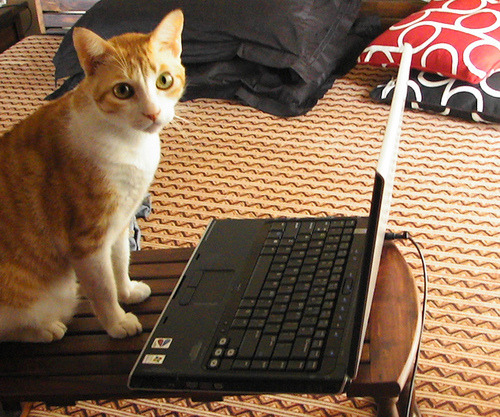
Photo (@kamerakrazy)
For over 10 years my focus, the one thing I strove to do well at was campus ministry. During my time at UC Berkeley my studies of physics and chemistry became secondary to my desire to help others explore the mysteries of the christian faith. After graduating I focused my career entirely on mentoring university students equipping them to go out as agents of change in our world. The books I read, the movies I watched, and the conversations I had were almost entirely about this mission. Campus ministry was my main thing – and by most accounts I did it well. But am also deeply grateful that throughout this time I worked on side projects.
In the early 2000’s my side project was writing software to make routine tasks easier. I wrote scripts to file expense reports, send out newsletters, and reconcile lists of donors and donations. I worked on web apps to follow-up with new students, share files with colleagues, and help students register for conferences. All of these side projects were in the service of university ministry.
As I look back, I realized the code I wrote was mediocre at best. It wasn’t efficient, concise, or intelligible. And while it is hard to admit, the programs I wrote probably took more time to write than they eventually saved. Still, with the perspective of hindsight it is clear that the time was well spent.
—-
I largely agree with Andy Dunn’s exhortation to “get one thing right.” Flitting around doing many things poorly will seldom help anyone. The advantages of specialization are at the roots of human civilization and I would be the last person to argue against focus, radical prioritization, and doing at least one thing in life with excellence. That said, for most of us the “one thing” we are trying to get right today won’t be the same “one thing” a few years from now. The question I want to address is how do we discern the “one thing” for tomorrow.
After spending my 20’s as a campus minister, I wanted to join the “agents of change” I was sending into the world. I dare say I felt called by God to have an impact outside the context of the university. While I wasn’t a great programmer my side projects taught me what it took to get something built. I was equipped to credibly invite talented engineers to join me and build something great together. My side projects helped me identify my interests, abilities, and values and gave me skills, experiences, and opportunities to step out with a sense of calling.
In 2007 some friends and I built Graceful Tools, a web service that helped tens of thousands of students arrange meetings and register for conferences. In 2009 I started another company called Todoroo, focused on helping people do the right thing. Again it helped tens of thousands of people achieve their goals. But it was a side project called Astrid that lead to the eventual success of our company. My co-founder Tim Su, originally built Astrid to learn Android programing and to nag him to get stuff done. In 2009 when Todoroo became our thing we tried to get right, I insisted we keep Astrid alive. Two years later, we were glad we did, when it became clear that Todoroo wasn’t the right “one thing.” We went on to raise funding form investors including Google Ventures because of Astrid. By the time we sold Astrid to Yahoo, users had downloaded the application nearly 5 million times.
Twitter started as a side project. So did Gmail, Google Talk and a number of other popular Google services. Side projects are where the “one things” of tomorrow are born.
This past year my wife worked on a book entitled Runaway Mommy, an imaginative reflection on the joys and challenges of parenting young children. Right for her writing is side project, but personally I think her writing is brilliant and I’m sure she will write again.
What creative projects are you working on? Great things often start small and on the side.